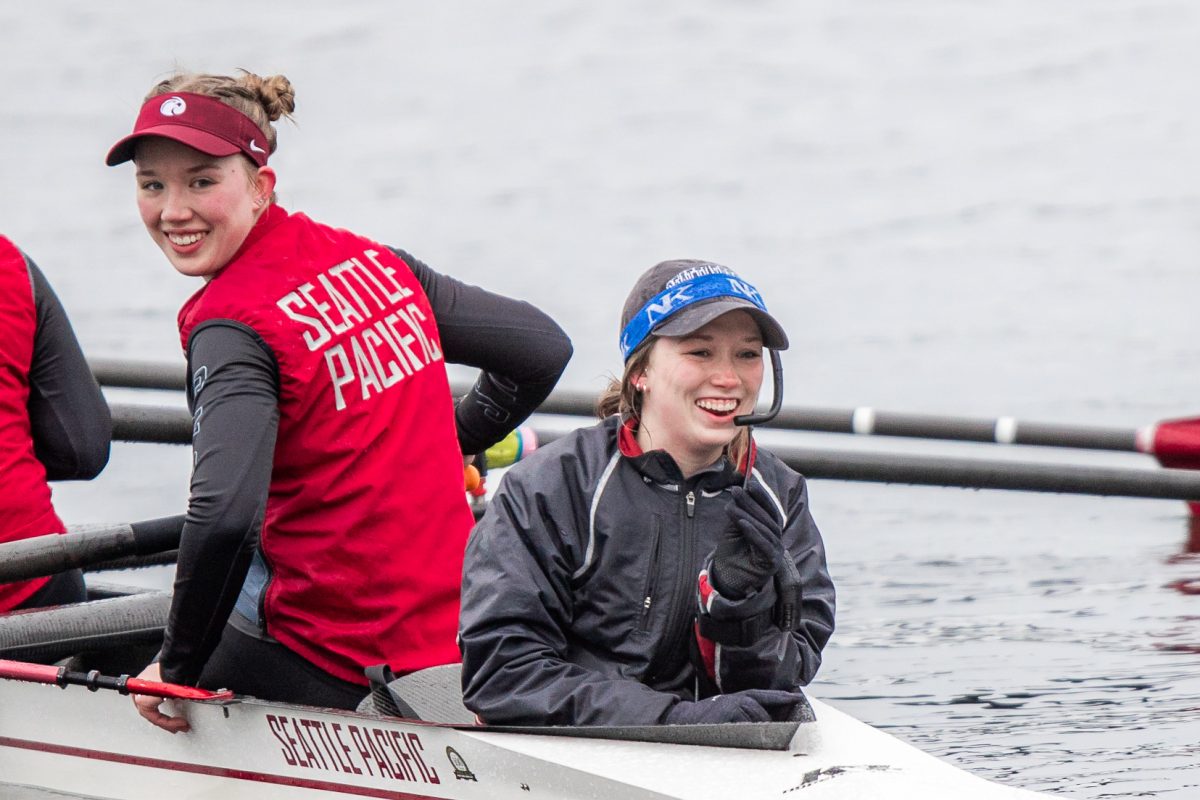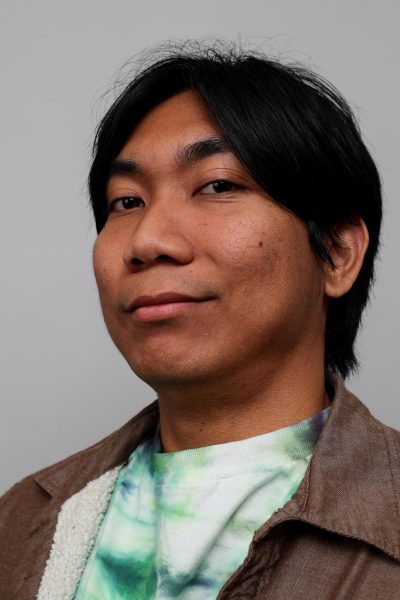Brains brought him to computer science, brawn brought him to track and field, but both are showing freshman hurdler Andrew Bell a bright future.
In his debut season with the Seattle Pacific University men’s track and field team, Bell has set and broken the school record in the men’s 60-meter hurdles event six times.
“I wasn’t shooting for it but was really excited to hear that I broke the record my first meet I ran,” Bell said. “It was really nerve-wracking, but now that I’ve got those [records] under my belt, I’m feeling really confident.”
Bell’s collegiate debut was at the Spokane Invitational on Dec. 14, 2024. He finished 10th at the event overall at 8.31 seconds, breaking the 8.33-second record set by David Njeri on Feb. 21 at the 2020 Great Northwest Athletic Conference Indoor Championships.
At the University of Washington Indoor Preview on Jan. 17, Bell broke his own record twice. He finished at 8.26 seconds in the preliminaries and then 8.21 seconds two hours later in third place in the finals. The fourth time Bell broke the record at the UW Invitational on Jan. 31, he finished in first place at 8.13 seconds and won a spot on the NCAA Division II provisional qualifying list.
Bell’s most recent accomplishments were at the 2025 GNAC Indoor Championships on Feb. 17 and Feb. 18. He finished first in the preliminaries at 8.10 seconds and in the finals at 8.01, becoming a GNAC champion.
Mark Moschetti, SPU’s assistant sports information director, has worked with the Falcons for 17 years, but Bell’s debut season was a first-time sight to behold.
“We’ve gotten some great freshmen over the years, but to come in and break a school record six times — no, that has not happened before,” Moschetti said. “Just really, really took to it right away, and we’re excited now to see you know what he’s going to do in the 110 hurdles outside.”
Bell recalled his early years when he began specializing in hurdles at Spanaway Lake High School. He gravitated towards the event due to a gap in speed and leg strength compared to his teammates.
Despite a lackluster ninth-grade season, Bell made a dramatic improvement going into 10th grade and only continued to rise.
“I am very fortunate my parents let me fuel that fire that I had to run,” Bell said. “I started club track over the summers to keep consistent, so I went from not placing in state to finishing fifth in state. Then, in the summer of my junior year, I switched club teams to one that pushed me and allowed me to step it up and win the state [championship].”
Entering the collegiate level, Bell was concerned about how his skill level would compare to veteran peers and competitors.
“I went into this college year not really thinking about times so much [as] improvement, because — first year, there’s more to come,” Bell said. “I was ready for a large gap in skill because there’s a lot of other athletes who are a couple of years older [with] strength that I never had.”
Bell’s accomplishments over just one season with the Falcons exceeded not only his expectations but also those of his new coach, Karl Lerum, the head coach for SPU’s track and field teams.
“Andrew came in as a very talented hurdle, but that’s not necessarily a guarantee of success at the college level because the hurdles move up three inches, but Andrew has navigated the change exceptionally well,” Lerum said. “He’s a technician, a very sound hurdler, and he’s going to get stronger and more confident as the season goes.”
Outside of sports, Bell is a computer science major, hoping to follow in his father’s footsteps as a programmer. His father is a back-end programmer for Chewy, one of America’s top online retailers for pet food, pharmaceuticals and products.
“I want to do something similar for a tech company, like Google or Microsoft,” Bell said. “I’d seen my dad code [when I was young] and had no clue what he was doing. It looked so random and weird, but as I started getting older, I liked problem-solving and computer science seemed like a completely different problem I wanted to solve.”
Bell gravitated to programming more as he began seeing it as a form of art.
“You have the free will to do whatever you want, but unlike art, there are boundaries,” Bell said. “If you don’t stay within the boundaries, it won’t work. Whereas art, if you exit your boundaries, looks amazing every time. That’s what I like about computer science. I still have my creative freedom, but I need to stay within the bounds of the language I’m using.”
As he progressed in his studies, Bell soon realized they paralleled his training as an athlete.
“You do want to push past your limits, but you don’t want to push past it so much to get hurt, because then you’re not going to compete at your highest level,” Bell said. “That’s happening with a couple of our athletes on the track team. They push a bit too much in a meet, so they’re injured and they’re not going to compete until the spring season starts.”
Moreover, the transition to collegiate competition on the track was a more pleasant surprise than in the college classroom.
“It’s a rough change from high school,” Bell said. “We spent so long in a class on a specific chapter that by the time a quiz came, I could do it with my eyes closed. In college, we’re doing a section of a chapter per day, finishing a chapter in a week, so it’s this fast-paced environment I wasn’t expecting. I’m struggling to figure out how to study properly and keep up with my classes while balancing track.”
Whether it is clearing hurdles or hitting computer keys, Bell can expect prosperous years with the Seattle Pacific Falcons.
“After this first semester, I think I improved significantly study-wise, and I’m going to do much better throughout the rest of school,” Bell said. “It’s a new feeling going over the hurdles [but] I’m not as far behind as I thought I [would be]. I’m [first] in our conference. I wasn’t expecting that.”

















































































